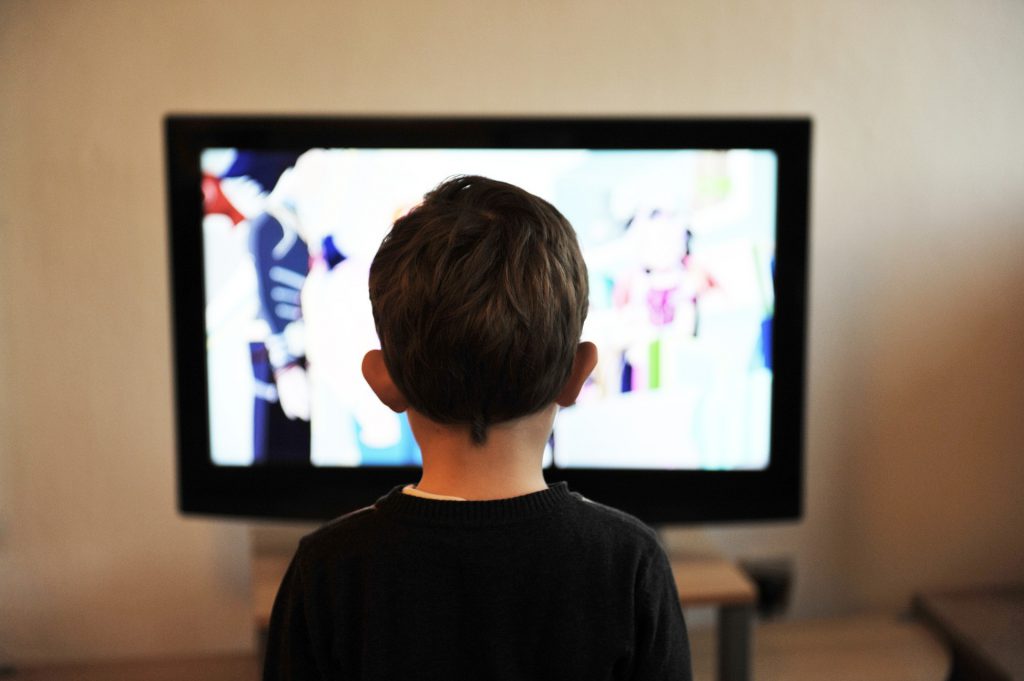Has your child been asking for their own cell phone? Are you wondering whether it’s a good idea or not? Read on to learn more.
You may want to buy your teen their own phone, and for good reason. Having access to a cell enables you to keep in touch with your child when they’re not in your care – and the world we live in is getting increasingly dependent on digital tech to get by.
But what are the dangers? We hear a lot about the impact of screen time on childrens’ and teenagers’ developing minds. Is it a bad move to put one into their pocket?
In this Kidslox Guide To setting cell phone rules for your 16-year-old, we explore how many teenagers have a cell phone, what are the negatives that you need to be aware of, how much time should your teen spend using their phone, and how you can set effective family rules to keep them safe.
How many fifteen and sixteen-year-olds have a cell phone?
If your teen is turning 15 or 16 soon, and they still don’t have their own cell phone, they’re in the minority. NPR reports that by the time they turn 11, 53% of children have a cell phone and with teenagers, it’s a huge 80%.
There are good reasons to give your child or teen access to a cell. All the practical purposes that they serve, and that we enjoy as adults can be helpful. You can keep in touch with your child at all times, and if they need you, you’re a call away.
Socially too, there are strong reasons to connect your kids with a cell phone. If the majority of their peers have one, it could lead to ostracization and feeling left out from events if they can’t keep up and connected.
Increasingly too, we need cell phones for the management of our everyday life – access to our bank account, emails, and medical records. The older your child gets, the more they need to be connected to go about daily tasks.
Should your sixteen-year-old have a phone? What are the dangers of teenagers having their own cell?
Whether you buy your teen a phone or not, that is a personal decision that only your family can make, but for a lot of people – the benefits of having a phone and the security it provides outweigh the potential dangers. However, there are many things you need to consider and be aware of before you buy the device.
Privacy and strangers
Ensure your teen is clued up on keeping themselves safe by never accepting calls, texts, or social media invites and messages from strangers. Ensure they never share their whereabouts, or use tracking apps or similar things to disclose their location publicly. If you allow them to be on social media, make sure they have private profiles.
Too much time online
Spending too much time plugged in can affect both your child’s physical and mental health. From a physical perspective, a five-year study showed that young adults who regularly texted reported pain in their necks and upper extremities. And, as our population becomes increasingly sedentary, the incidence of obesity is also on the rise. Mentally, studies have also shown that children and teens who are distracting themselves from homework and other commitments are can suffer from increased levels of anxiety and stress.
A world of content at their fingertips
Once you give your child a smartphone, they can access the internet from wherever they are. In an ideal world, they’d use that privilege to further their study and knowledge – and some do, but it also opens them up to content that isn’t suitable for them. It also exposes them to advertising, messaging from brands, and ‘influencing’. This constant comparison and connection with consumerism can impact their self-esteem and the concept of the value of money and hard work.
Lack of exercise
When they’re on their phone, your teen is unlikely to be moving enough to keep them healthy. While some apps encourage exploration of the environment, e.g. Pokemon Go, the majority are designed to be scroll-traps where teens sit and watch video after video, or message friends digitally without playing in the real world.
Increased risk of anxiety and depression
At its most serious, access to a cell phone can put a bully in your teenagers’ pockets. Children can often be the target of trolling and other destructive behaviors. There is also mounting scientific evidence to suggest a correlation between the introduction, and increasing use of smartphones and rising rates of teenage depression.
Managing their usage with clear rules for teenagers is the key to fostering a healthy relationship between young people and their electronic devices.
So how do you set some rules and limit cell phone use for your teenager?
If everyone’s on their phones, it can be difficult to persuade your teen to spend less time on theirs, but it’s important to set boundaries and be honest and open about why it’s important.
A study by The Kaiser Family Foundation found that 8-to-18-year-olds are spending an average of over seven and a half hours using entertainment media each day. Most of this time is spent multi-screen too – flipping from app to app.
Increased screen time has been associated with many negative psychological effects. Teenagers spending too much time on their phones are more likely to be at risk for depression and anxiety and low emotional stability.
How to limit the time your teen is spending on their cell phone
All children are different. What might work with another could face fierce resistance from another child. Therefore, always take your family’s individual needs and personalities into account when coming up with your strategy to limit the time your teen spends on their cell phone.
A Cell Phone Contract
This is something Kidslox has written about before. A cell phone contract is a practical outline of rules around the phone that everyone in the household must abide by. This can include:
- Caring for the device
- Keeping the device clean, and organized will teach your teen to respect their property. If they’re old enough, you can let them know that any breakages need to be paid for by the teen themselves, to encourage them to take better care of their belongings.
- Right to remove
- If any of the rules are broken, the parents always reserve the right to take the cell phone from the teenager until further notice.
- Limits of time and apps
- If you want your teenager to have a cell phone to provide that additional peace of mind when they’re not in your care, but you’re worried about the type of content they might access on it, it’s important to be clear on which apps you allow, and which you don’t. Kidslox can support by limiting access to apps on your teen’s device, as well as setting time limits for certain activities.
- Charging protocols
- When the phone is charging, it’s to be left in a public place and the teen isn’t allowed to play with it. This is a simple, daily boundary that ensures your teen is getting some screen-free time.
- Screen-free dinners
- No screens or cell phones are allowed at the dinner table.
- Quality, family time
- Schedule a weekly digital detox when all members of the family are cell phone free. Take it in turns to decide what you do as a family during that time. Involving your children in that decision-making can help keep them motivated to follow the contract.
If this sounds like something you’d like to implement in your home, these cell phone contract templates make a great starting point.
Some more ideas on teaching teenagers about healthy screen habits and setting cell phone rules
Dictating rules around cell phone use without working collaboratively with your teenager is seldom successful. Here’s a quick guide to starting an open, and productive conversation about boundaries.
- Make sure your teen understands that access to their phone is a privilege
- As ubiquitous they are with modern life, cell phones are often expensive, and should be treated as a privilege, not a right.
- But, be wary of reward strategies
- What might work with younger children isn’t going to be an effective strategy with teenagers. Using a cell phone and access to apps as a reward for good behavior is a slippery slope that can encourage an unhealthy, addictive attitude to the phone. Clear, daily, measured time allowances and consistency is key to developing healthy habits over time.
- Replace screen time with mutually-agreed family time
- Distraction is key! If you want your teen to spend less time on their phone, you can replace their attachment to it with something equally as exciting. Spending time outdoors, doing a hobby or activity they love, is a great way to do it.
- Be a role model!
- Be honest with yourself. Do you spend too much time on your phone? Do you play on your cell when your children are around and need your attention? Children model our behavior so practice what you preach and pop it in the drawer until the kids are in bed.
- Be open about the consequences of too much screen time
- Enforcing rules without an explanation can be confusing and difficult for you to enforce. If your child is mature enough, try explaining to them the dangers of spending too much time on their cell phone. Encourage honesty, and talking about feelings. If they get the opportunity to think about it, perhaps your teen might notice the times that playing on their phone isn’t making them as happy as they think it is, and how taking a break can make them feel a lot better.
So, you’ve decided to make a cell phone contract or work with your teen to reduce the amount of time they spend on their device. But how much screen time do experts recommend for fifteen and sixteen-year-olds?
The Canadian Society of Exercise Physiology has created the 24-Hour Movement Guidelines, to encourage and educate people of all ages to spend less time sedentary and in front of screens. The guidelines for teens state no more than two hours per day of recreational screen time, and limited sitting down for extended periods. The guidelines also advise teens to get around 8-10 hours of uninterrupted sleep each night, with consistent bed and wake times as well as moderate daily movement and exercise and more intense, cardio exercise for 60 minutes, three times a week.
Sleep hygiene is important for everyone, and teenagers are no exception. Using phones and screens before bed can impact the quality of sleep your child gets and makes it more difficult to fall asleep too. If phones are kept in the bedroom, then this can also provide a distraction during the night, and it sets a bad precedent if it’s the first thing that your child reaches for in the morning. Try and make it a routine in your family to put phones away an hour before bed, and to use a traditional alarm clock instead of your phone to wake up.
In conclusion…
If you’re about to purchase your teenagers’ first cell phone, or you’re looking for effective strategies to limit the time they spend using one, remember the following rules.
- Approach the conversation collaboratively and consider using a cell phone contract to put the rules n a public place where they can easily be referred to
- Agree on healthy limits on screen time and ensure your teen has lots of real-world activities and hobbies
- Stay private – no open social media profiles or sharing locations
- Teach online etiquette – be kind, polite and don’t behave in a way that could impact your reputation.
- Model the right behavior when you’re around your teen and it’ll be easier to get them to comply with what you need them to do.







